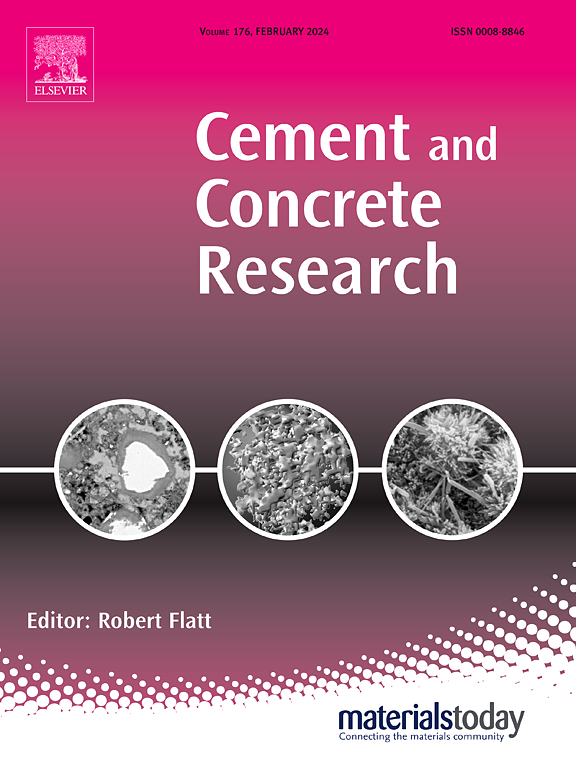Interaction of reinforcement, process, and form in Digital Fabrication with Concrete
IF 10.9
1区 工程技术
Q1 CONSTRUCTION & BUILDING TECHNOLOGY
引用次数: 0
Abstract
Material, manufacturing process, and form are mutually dependent. In formwork-based concrete construction, the reinforcement must be positioned and fixed in the formwork, limiting material efficiency and freedom of form. In Digital Fabrication with Concrete (DFC), the formwork no longer limits the concrete forming process. Furthermore, the reinforcement no longer must be installed in advance, but can be placed before, during or after the concrete application. Therefore, the role of reinforcement and its interaction with processing must be fundamentally rethought in DFC. Furthermore, with reinforcement integration a concrete component expands from a contour-based shape into a structural form.
The current paper proposes a new so-called RPF-framework expressing the interaction of reinforcement, process and form in DFC. The application of this framework is illustrated using current examples of DFC, whose structural forms are critically discussed. Finally, the need for a holistic approach to material, process and form in DFC is emphasised.
混凝土数字制造中钢筋、工艺和形式的相互作用
材料、制造工艺和模板是相互依存的。在以模板为基础的混凝土施工中,钢筋必须在模板中定位和固定,从而限制了材料效率和成型自由度。在混凝土数字制造(DFC)中,模板不再限制混凝土成型过程。此外,钢筋不再必须提前安装,而是可以在浇筑混凝土之前、期间或之后放置。因此,在 DFC 中必须从根本上重新考虑钢筋的作用及其与加工过程的相互作用。此外,随着钢筋的集成,混凝土构件将从基于轮廓的形状扩展为一种结构形式。本文提出了一种新的所谓 RPF 框架,用于表达 DFC 中钢筋、工艺和形式之间的相互作用。本文提出了一个新的所谓 RPF 框架,表达了 DFC 中钢筋、工艺和形式之间的相互作用。本文通过当前 DFC 的实例说明了该框架的应用,并对其结构形式进行了批判性讨论。最后,强调了对 DFC 中的材料、工艺和形式采用整体方法的必要性。
本文章由计算机程序翻译,如有差异,请以英文原文为准。
求助全文
约1分钟内获得全文
求助全文
来源期刊

Cement and Concrete Research
工程技术-材料科学:综合
CiteScore
20.90
自引率
12.30%
发文量
318
审稿时长
53 days
期刊介绍:
Cement and Concrete Research is dedicated to publishing top-notch research on the materials science and engineering of cement, cement composites, mortars, concrete, and related materials incorporating cement or other mineral binders. The journal prioritizes reporting significant findings in research on the properties and performance of cementitious materials. It also covers novel experimental techniques, the latest analytical and modeling methods, examination and diagnosis of actual cement and concrete structures, and the exploration of potential improvements in materials.
 求助内容:
求助内容: 应助结果提醒方式:
应助结果提醒方式:


